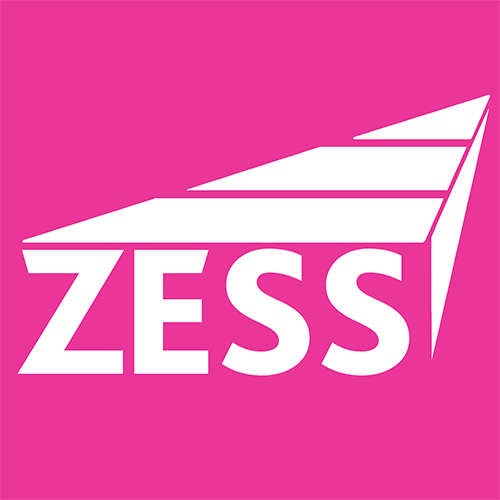
The Center for Sensor Systems (ZESS) is an interdisciplinary research centre at University of Siegen’s Faculty for Science and Technology. Its track record of leading sensor related research spans more than three decades.
Scientists from fields as diverse as mechanical engineering, electrical engineering, computer science, mechatronics, mathematics and biology combine their knowledge to jointly conduct both applied as well as foundational research.
Our projects touch upon the fields of novel sensor principles, sensor development, sensor information processing, high level information extraction, machine learning, artificial intelligence and system integration.
The ZESS as an idea and as a space to work together provides the basis for interdisciplinary cooperation, industry partnerships and collaboration with other research institutions. A strong focus in our research is always the transfer of knowledge into university teaching and industrial applications.
Sensor Research
While the sensor systems mostly noticed in the wild might be the parking assistant, the motion detector in your outdoor light, and the light barrier in the elevator, sensors play a vital role in industrial applications, home automation, health monitoring and medicine, navigation, as well as crisis and disaster relief. An exciting field of multi sensor systems has developed over the past years with machine learning and artificial intelligence as the most recent disruption.
![ZESS Members in April 2024 [Photo: Jan Söhlke/ZESS, University of Siegen]](https://www.zess.uni-siegen.de/wp-content/uploads/2024/10/ZESS-Members_April-2024_Copyright_Jan-Soehlke_ZESS-University-of-Siegen-1-643x1024.jpg)
[Photo: Jan Söhlke/ZESS, University of Siegen]
Excellence in Postgraduate Education
Postgraduate education has always been at the core of the work at ZESS and the over the years we have successfully filled this with life through the establishment of a variety of structured programmes, the latest addition being the European Masters Programme EMINENT.
Past programmes include the ITN MENELAOS, the DFG RTG Imaging New Modalities, the International Postgraduate Programme Multi Sensorics by the German Academic Exchange Service (DAAD), and the research school Multi Modal Sensor Systems for Environmental Exploration and Safety (MOSES).
Equipment
ZESS provides on a floor space of about 1.200 square meters (office and laboratory space) modern equipment for the different priorities, it includes laboratories and measuring places for:
- Image processing and laser measuring technique (translatory and rotatory positioning units)
- Optical developments (spectral radiometry, confocal microscope, laser measuring stand)
- Medical measurements with X-Ray
- Environmental measurements (wet laboratory and chemical laboratory with fume hood)
- Real-time signal detection and processing
- EMV-measuring technique
- Microelectronics and microsensorics
- Applied robot technique (autonomous systems)
- Computer work stations for simulations and calculation of algorithms
Cooperations
In the context of joint projects of the BMBF and the EG ZESS usually has cooperation with industrial partners. For projects that are carried out independently of public funding, a free contract drafting is possible, taking into account in particular the confidentiality requirements of the industrial partners. For clearly specified requirements, a timeframe and budget can be specified at the beginning. Otherwise, a feasibility study is common practice. Utilization or patented legal aspects are covered by a contract in detail. Further to this kind of settlement, the time-restricted cooperation of specialist staff of the cooperation partner is possible. Other service aspects are the realization of problem analyses and consultations as well as the verification of performance data (expert´s reports).
Seminars
Industrial seminars and lectures are offered on the following subjects:
- Optical measuring technique (general)
- 2D/3D – measuring technique
- Multisensory- und image processing
- Signal processing and simulation techniques
- Communication Engineering (general)
- Kalman-Filter technique
- Stochastic models and information theory (general)
- SAR (Synthetic Aperture Radar)
- Mechatronics and robotics
- Embedded Systems (practical applications)
- Workshops for electronic design and precision engineering
- FPGA design with Verilog/VHDL
